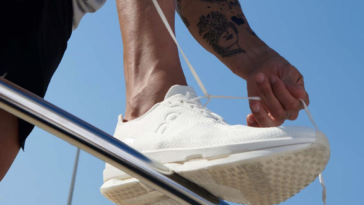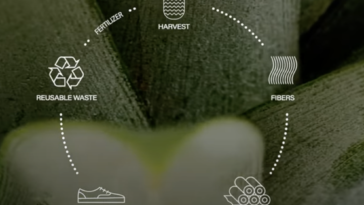The airline is stepping forward to ask the aviation industry as a whole – and also individual travellers – to join forces to create a more sustainable future for aviation, together. In an open letter published this weekend in leading international newspapers including the New York Times, the Guardian, the Frankfurter Allgemeine Zeitung, the airline is urging everyone to join in this effort. This includes asking corporates and individuals making responsible travel decisions.
The open letter from KLM’s CEO, Pieter Elbers, is published in international newspapers in the US, the UK, Brazil, the Netherlands, the Nordics and Germany, and is underpinned by a social video, which asks a series of questions including: “Do you always have to meet face-to-face?”, “Could you take the train instead?” and “Could you contribute by compensating your CO2 emissions or packing lightly?”
The video is part of an online platform, where under the new name and logo “Fly Responsibly”, which will be seen across KLM communication, the airline commits itself to achieving maximum progress. And prompts travellers to reconsider their options before taking a plane. The “Fly Responsibly” initiative is conceived and created by KLM’s long-time creative partner, DDB Unlimited.
“Sustainable development in aviation is not a ‘one-airline-topic’ and actual progress will only be made when we work together as an industry. That’s why with the launch of the ‘Fly Responsibly’ initiative, we invite others to use our CO2Zero-programme for carbon compensation free of charge and free of brand, and partner in our corporate BIO-fuel programme.” Pieter Elbers, President & CEO of KLM Royal Dutch Airlines, says.
The aviation industry is responsible for 2 to 3 percent of global man-made CO2 emissions. As demand for air travel rises, so too will this number. Already KLM has made considerable progress in becoming more sustainable by serious progress in weight reductions, recycling and carbon offsetting. AirFrance KLM Group has ranked at the top of the Dow Jones Sustainability Index for the past 14 years, however efforts by one player in the industry alone is not enough.
A joint international movement is needed for more substantial progress. Leading the way, KLM has not only become the first airline in the world to invest in sustainable aviation fuel at such a large scale by investing in the first sustainable fuel plant fuel in Europe. But, is also committed to sharing its sustainability learnings, best practices and tools with its competitors. Stepping forward, KLM is committed to sharing its knowledge in this field – such as optimal flight insights – with all airlines. It will also offer competing airlines its CO2 compensation programme ‘CO2ZERO’ free of charge and, of course, free of KLM branding.
Esther te Pas Managing Director at DDB Unlimited says: “KLM has strong views on creating a sustainable future for aviation. So, it’s very fulfilling to turn this vision into the ‘Fly Responsibly’ platform. This isn’t about a campaign, but an initiative with a long-term commitment to change. We’re proud to take the lead and to help KLM to really set the agenda on sustainable air travel.”
While KLM does not claim to have all the answers, the initiative is rooted in the belief that collaboration – and joining forces with all key players – is essential. To accelerate progress and find new solutions, the initiative reaches out to every stakeholder in aviation, including other airlines and air travellers, to join in this effort.
”When we first created the line ‘Fly Responsibly’ the whole team instantly had the feeling that this could be big. And it grew bigger and bigger. Fly Responsibly is much more than an awareness logo. It’s a movement inviting the entire aviation industry and air travellers, to join forces. We hope other airlines will follow soon and embrace this initiative.” Ed van Bennekom, Creative Director DDB Unlimited, says.









